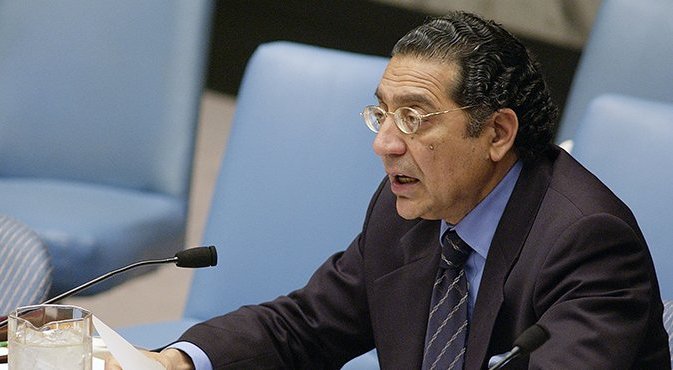UNITED NATIONS, The President of the UN Economic and Social Council (ECOSOC), Pakistani Ambassador Munir Akram, has underlined the need for concessional financing and debt relief to help the middle-Income countries recover from the economic and social impacts of the coronavirus pandemic.
“The pandemic has uncovered the multiple vulnerabilities and inequalities that pre-existed in this diverse group of countries,” he told the UN General Assembly on Thursday.
“Additionally, crippling debt, global economic inequalities and vulnerability to the effects of climate change and natural disasters, had eroded prospects for growth in the lower echelon and even the upper echelon of middle-income countries,” the ECOSOC chief said in his opening address at a high-level meeting on these nations.
The meeting was convened to discuss the gaps and challenges of middle-income countries in the implementation of the 2030 Agenda for Sustainable Development, with a focus on the economic dimension of sustainable development.
“Before the pandemic,” Ambassador Akram pointed out, “there was a global gap of USD 2.5 trillion in financing for achieving the (Sustainable Development Goals (SDGs), as a result of the crisis this gap is increased to 4.2 trillion per year for all developing countries of which the middle-income countries are a sizable proportion.”
“If we are to recover back better from the pandemic what we need, first of all is equitable access to the COVID-19 vaccine for all,” he said, while referring to ECOSOC’s special meeting on “A Vaccine for All“ that spotlighted on the unacceptable inequalities in access to the vaccine between the poor and the rich countries.
“We need to expand production, distribution, waive Intellectual Property Rights in order to make sure that everyone, everywhere is vaccinated as soon as possible,” the ECOSOC chief said.
But, Ambassador Akram said the biggest challenge lies in access to affordable and concessional financing and debt relief to enable middle-income countries like other developing countries to respond to the multi-faced crisis.
“The pandemic has drained domestic resources and forced many countries to divert these resources to addressing health, social and climate crises,” he said, noting that many middle-income countries face serious resource constraints.
While welcoming the Group of 20 (industrialized countries) Debt Service Suspension Initiative, he said many middle income-countries have been excluded from this initiative.
The ECOSOC chief called for recognizing the multiple dimensions of their vulnerabilities in the criteria for accessing concessional resources and finance. The reallocation of a sizable proportion of the special drawing rights which are to be created will be a critical part of the solution to the financial needs of the developing countries.
The early participation of private sector in the debt solution is critical, he said.
Ambassador Akram said that technology transfer and bridging the digital divide was critical to enable developing countries especially the middle-income countries to leapfrog into modern global digital economy.
Speaking next, UN Secretary-General Antonio Guterres said that middle-income-countries, which account for more than half of the UN’s 193 member states, needed financing to help them recover in the wake of the global crisis.
He said that middle-income countries should have their debts suspended into 2022 to cope with the social and economic impact of the virus.
Many were already dealing with mounting debt before the pandemic, which has only further aggravated the situation.
“In small island states, for example, the collapse of tourism has greatly hindered their capacity to repay debts. And while the global response to the debt crisis is rightly attempting to support low-income countries, middle-income countries must not be left behind”, he stated.
Diversity defines the world’s middle-income countries, which were already home to some 62 per cent of the world’s poor prior to the pandemic, the UN chief said.
Follow the PNI Facebook page for the latest news and updates.









